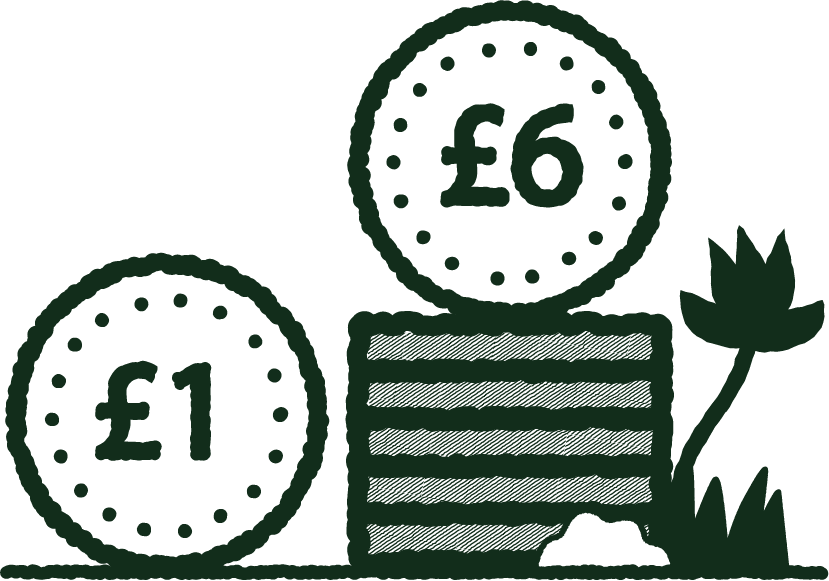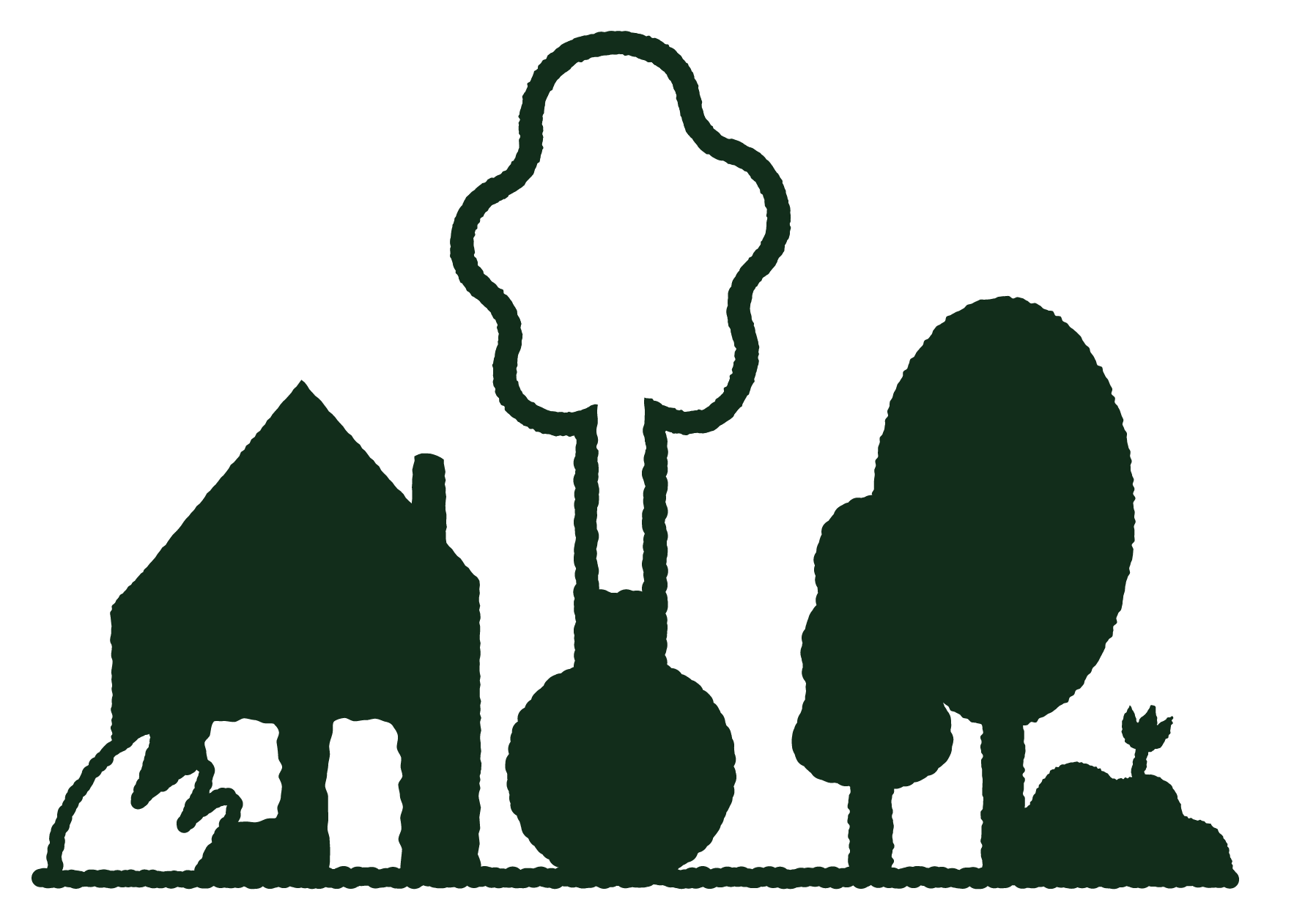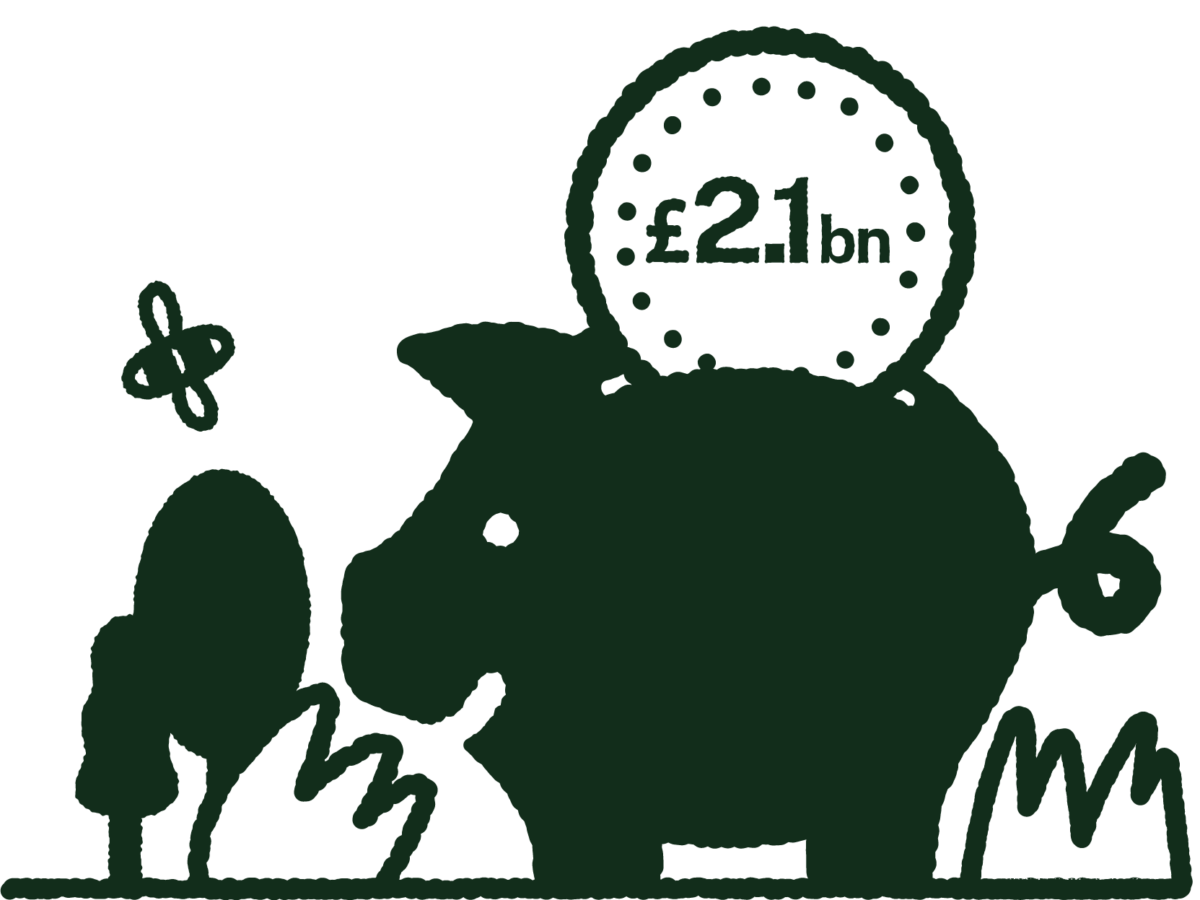Benefits
Urban green spaces provide an array of benefits for individuals’ health and wellbeing, communities and the wider physical environment.
Community

Green spaces often serve as gathering spots, where people can meet and interact with others. This helps foster a sense of community and encourage social cohesion.

Our projects typically have a 6:1 social return on investment.

Well-maintained green space can attract investment and boost local economies.
Environment

Making new green spaces or improving existing ones helps to create, restore, and connect habitats, boosting biodiversity.

Flowers and fruit/vegetable plants provide food sources for pollinators such as wild bees, butterflies, moths and hoverflies, which play a crucial role in plant reproduction and biodiversity health.

Cities are predominantly made up of concrete buildings and roads that are impermeable and encourage surface water run-off. However, vegetation helps to reduce flood risk by slowing rainwater runoff and absorbing excess water.

Street trees have a cooling capacity of up to 2.9°C, which is vital in cities, as in the summer, inner-city Manchester is 8°C warmer than surrounding rural areas.
Economy

Public Health England has estimated that £2.1 billion in health costs could be saved per year if everyone had good access to green space.

Government-led Parks Action Group found that for every £1 spent on parks in England an estimated £7 in additional value for health and wellbeing and the environment is generated.

Allotment holders spend on average £202 growing veg, that would sell for £1,564 in supermarkets.
Health

Natural environments elicit greater calming responses than urban environments and viewing nature for just 20 minutes has been shown to reduce stress hormone levels.

Accessible urban green spaces encourage physical exercise, which can reduce heart disease risks and chronic diseases. Being in nature has also been shown to boost our immune systems.

Green spaces in cities can help reduce air pollution, which is essential as in Greater Manchester, toxic air is the largest environmental cause of poor health, contributing to 1,200 deaths per year.